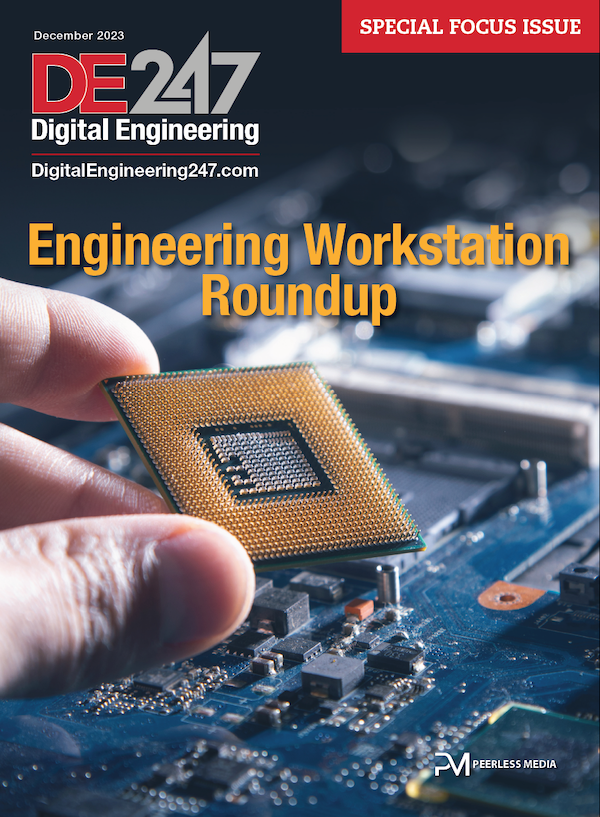Khronos Announces OpenCL 1.1 Specification for a Parallel Computing Standard
Cross-platform open standard for heterogeneous parallel programming; OpenCL 1.1 Conformance Tests and C++ wrapper API also released.
Latest News
June 21, 2010
By DE Editors
The Khronos Group has announced the ratification and public release of the OpenCL 1.1 specification, the latest version of the open, royalty-free standard for cross-platform, parallel programming of modern processors. According to the company, OpenCL 1.1 provides enhanced performance and functionality for parallel programming in a backwards-compatible specification that is the result of cooperation between industry-leading companies.
OpenCL working group members include: AMD, Apple, ARM, Blizzard Activision, Broadcom, Codeplay, Electronic Arts, Ericsson, Freescale, Graphic Remedy, IBM, Imagination Technologies, Intel, Kestrel Institute, Los Alamos National Laboratory, Movidia, Nokia, NVIDIA, Petapath, Presagis, Qualcomm, Renesas, S3 Graphics, Seaweed Systems, Sony, ST-Ericsson, STMicroelectronics, Symbian, and Texas Instruments.
Khronos also announced the release of a C++ wrapper API for use with OpenCL, and the immediate availability of OpenCL 1.1 conformance tests. The OpenCL 1.1 specifications, online reference pages and reference cards are available here.
“The clear commercial opportunity to unleash the power of heterogeneous parallel processing that drove multiple OpenCL 1.0 implementations has also fueled the ongoing industry cooperation to create OpenCL 1.1,” says Neil Trevett, chair of the OpenCL working group, president of the Khronos Group and vice president at NVIDIA. “The OpenCL 1.1 specification is being released 18 months after OpenCL 1.0 to enable programmers to take even more effective advantage of parallel computing resources while protecting their existing investment in OpenCL code.”
OpenCL 1.1 adds functionality for enhanced parallel programming flexibility, functionality and performance including:
- New data types including three-component vectors and additional image formats.
- Handling commands from multiple hosts and processing buffers across multiple devices.
- Operations on regions of a buffer including read, write, and copy of 1D, 2D, or 3D rectangular regions.
- Enhanced use of events to drive and control command execution.
- Additional OpenCL C built-in functions such as integer clamp, shuffle, and asynchronous strided copies.
- Improved OpenGL interoperability through efficient sharing of images and buffers by linking OpenCL and OpenGL events.
“The release of OpenCL 1.1 is coming at a perfect time, capitalizing on the rapidly growing interest in GPU computing across the industry,” says Manju Hegde, corporate vice president, Fusion Experience Program, AMD. “AMD believes that to spur this growth and reassure ISVs and the software development community that they will get the maximum market potential for their products, it is critical for vendors to embrace a multi-vendor, multi-source interface and an industry standard programming model. As one of the most committed supporters of OpenCL through our ATI Stream Software Development Kit, AMD is poised to unleash the true potential of application acceleration with our AMD Fusion Family of APUs, scheduled for release in 2011. These APUs are designed to support OpenCL on both the GPU and the CPU, thereby providing an unmatched heterogeneous computing platform.”
Khronos OpenCL Members will speak and demonstrate the specification at SIGGRAPH in Los Angeles on July 27-29, 2010. The BOF “Birds of a Feather” session takes place on July 27 from 4 to 6 p.m. The audience will meet designers and implementers of this standard and learn how OpenCL interoperates with OpenGL.
For more information, visit The Khronos Group.
Sources: Press materials received from the company and additional information gleaned from the company’s website.
Subscribe to our FREE magazine, FREE email newsletters or both!
Latest News
About the Author
DE’s editors contribute news and new product announcements to Digital Engineering.
Press releases may be sent to them via [email protected].






